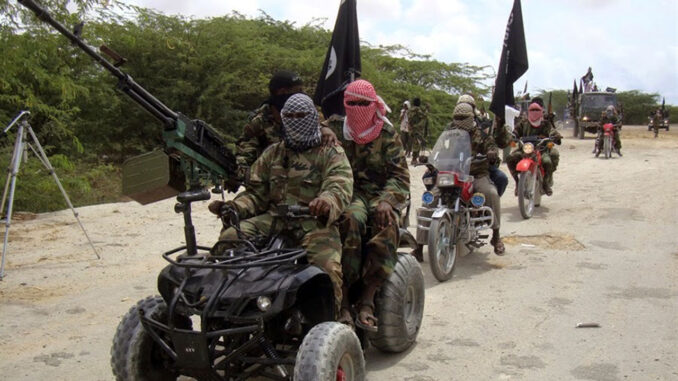
On April 15, 2014, I sat in my living room in Lagos State, Nigeria, at about 10pm, and watched with rapt attention the breaking news about the kidnap of schoolgirls (ranging from the ages of 16 to 18) from a boarding school in Chibok, Borno State by the Boko Haram sect. Whilst I was startled with the news, I went on to Twitter to see the views of people on the kidnap, and to my surprise Twitter was literally on fire. It was said that before the kidnap, the school had been shut down for four weeks as a result of the worsening security conditions in the state, but the students had to return to school to take their final exam in physics.
This opinion is a wake-up call to the Nigerian government — ensure safety of its citizens, especially the schoolgirls from attacks, re-integrate displaced people into their original communities and provide good living conditions for them. As a Nigerian mother with children of my own, the safety of the Nigerian schoolgirl worries me.
In present day Northern Nigeria, the schoolgirl seems to face the risk of either being afraid of school or getting kidnapped and used as a bait for ransom whenever she goes to school. This has to stop! I believe in the saying that ‘when you educate a girl, you have educated a nation.’
Before I go on to respond to issues surrounding the news, I would love to explain Boko Haram as a movement. Boko Haram means ‘Western education is forbidden’. It is a terrorist group based in the Northeastern part of Nigeria, Chad, Niger Republic and Northern Cameroon. In February 2018, a part of the Boko Haram called the Islamic State, West Africa Province (ISWAP) kidnapped more than 100 students in Dapchi, Yobe State – Leah Sharibu is the only girl still held hostage because of failure to renounce her religion, Christianity.
Recently, in February 2021, there was the kidnapping of 279 schoolgirls in Jangebe, Zamfara State. Schools have been soft targets for this sect. It appears that the leaders of the Boko Haram sect stand on the meaning of their movement to perpetuate acts of violence against school children thereby deterring young children access to good education. The question that readily comes to my mind as a Nigerian is: What measures have the government taken to avert these? This definitely shows the incompetence of the government. A government (not relating to the government in power but the Nigerian government as an institution) that cannot avert such occurrence can definitely not be taken seriously.
According to the UN Relief Agency, Boko Haram insurgency has caused the death of 324,000 children and displaced about 2.1 million people. With these figures, it is evident that migration- caused by the quest for safe school, the fear of being kidnapped, hunger, unemployment and the search for a better life- thrives well in crisis prone areas. Affected families have had to flee their homes to Internally Displaced People’s (IDP) Camps that have been provided for by the government.
The crisis has also led to international migration as families have sought for asylum in other countries. Most of the intervention that the people of the Northeastern part of Nigeria have gotten so far has been from International NGOs. International Organisations like the UNDP and UNHCR- https://www.unhcr.org/news/briefing/2019 have been proactive in proffering solutions for the resettlement of these internally displaced persons but the Nigerian government has not done so much in the implementation of these plans and policies.
There are questions to ask the Nigerian government: How long will these internally displaced persons continue to stay in camps with little or no hope for their future? When will they be fully integrated into the society where they originally belong? Will the Nigerian government continue to put all its responsibilities on international organisations?
In my opinion, I think there are two sides to it. It seems that the fight against Boko Haram overwhelms the government or the government appears nonchalant in the discharge of its responsibilities to the citizens.
Eduviere is a PhD student and Teaching Assistant at the Department of Religious Studies, University of Iowa


Be the first to comment